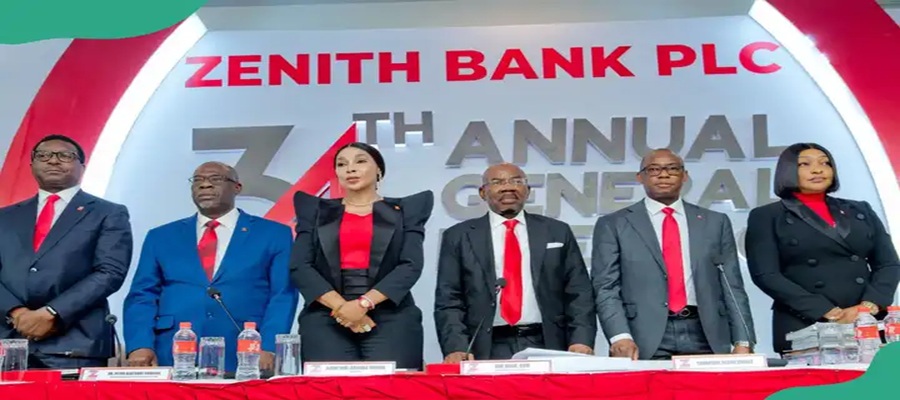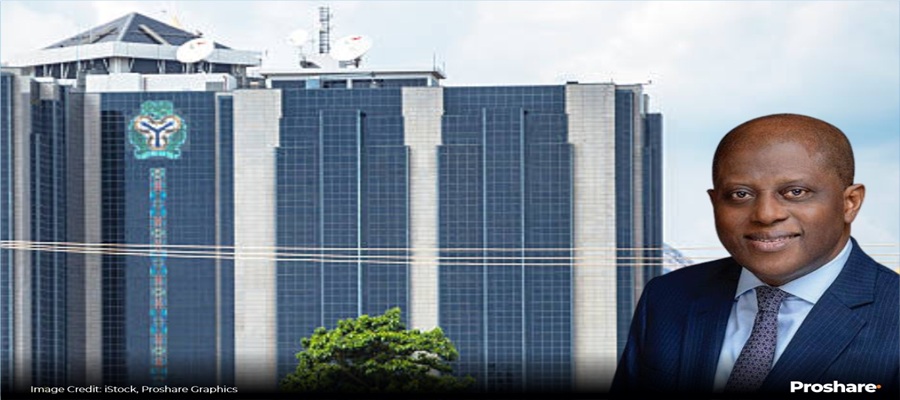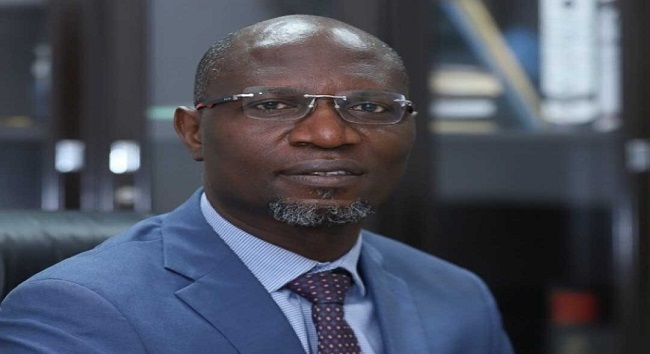E-Financial
CBN’s N2.9Trillion Intervention Saves Banks, Power Sector from Collapse- Report

The lifeline by the Central Bank of Nigeria (CBN) through various intervention funds may have saved Deposit Money Banks(DMBs) and the power sector from imminent collapse, according to the Sun.

Some industry observers insisted that the backing of Deposit Money Banks (DMBs) by the CBN in the take over of some Distribution Companies(Discos) and the roles being played by the apex bank to ensure their shares are successful transferred to new investors remained a leeway for the financial and power sectors.
Without the action, most of the stakeholders submitted that collapse of some banks as well as massive job losses would have remained inevitable.
The experts, who also noted that the apex bank’s backing of the takeover saved the country from economic catastrophe, noting that recovering government loans as well as that of commercial banks remained critical for the nation’s financial sector even as government intervention in the sector now stands at N2.9 trillion.
A power sector analyst, Adetayo Adegbemle, noted that the CBN role in protecting the collapse of the bank from power sector loan remained sacrosanct, adding that the indebtedness of the power sector to the bank would have led to the collapse of banks.
“I love the fact that CBN came into the power sector, not just to save the power sector. Don’t forget that, even though they have roles to play in the sector but they came in to save their own banking sector.
“The loans that the power sector took from the banks have become bad and if you do not do anything it is going to be on the books of the banks. So CBN backing the banks to take-over the shares is a good thing for CBN,” he said
Energy lawyer, Madaki Ameh, had stated that there was need for the total overhaul of the sector, insisting that the overhaul is long overdue and the takeover of the DisCos remained legally justified under the terms of the agreement, which brought them into the Nigerian Electricity Supply Industry (NESI).
He said the DisCos have not met any of the minimum thresholds set for them by government since privatisation despite the huge investment the government has continued to make in the sector.
“If you compare happenings in the power sector with the telecoms sector, you will see clearly that there were structural defects with the implementation of the privatisation policy in the power sector and that nothing short of a total take over of the DisCos and some of the non-performing GenCos would deliver the sort of efficiency required to transform the Sector in Nigeria,” Ameh said.
Backed by the apex bank, DMBs had taken over five DisCos amidst poor performance and inability to pay back loans, a development which is already putting some banks on the edge of collapse.
With indications that the government’s intervention fund to the power sector now hover around N2.9 trillion since the sector was privatized in 2013, stakeholders insisted that the total collapse of the power sector would have had serious implications, not only for the banks but the entire economy.
In what has been described as poor financial performance, Abuja DisCo, Ibadan DisCo, Kano DisSo, Kaduna DisCo and the Benin Electricity Distribution Companies (BEDC) have been at loggerhead with the banks in a move backed by the CBN, Nigerian Electricity Regulatory Commission (NERC) and Bureau of Public Enterprises (BPE).
Coming amidst a fresh $500 million loan by CBN to improve the capacity of the distribution companies, the development is happening at a time of global energy crisis where diesel now hovering around N850 per litre, as government spend heavily to subside Premium Motor Spirit (PMS).
A report by CSL Stockbrokers Limited, (CSLS) titled; “The continued rise of bank loans to power sector”, had last week stated that the power sector owed N836.08 billion to Deposit Money Banks (DMBs).
The payback loans notwithstanding, the DisCos are indebted heavily despite huge stimuli from the Federal Government and interventions from the Central Bank of Nigeria (CBN).
Prior to takeover, CBN had directed the Deposit Money Banks to take charge of the collection of electricity bill payments as a circular signed by Hassan Bello, director of banking supervision had linked the move to the recommendation of the Power Sector Coordination Working Group to improve payment discipline in the Nigerian Electricity Supply Industry (NESI).
BPE had disclosed last week that it is working with CBN to ensure that banks, which took over the DisCos exit in six-month as the Director-General of the BPE, Alex Okoh said the banks were not expected to hold the shares in perpetually.
“In fact, in conjunction with the CBN, we have given them a deadline of six months within which to sell those shares to credible operators approved by the BPE and NERC and should they not be able to meet that deadline, they can be given a maximum extension of another six months. So in one-year maximum, they should be out of the DISCOs.”
Recall that the Distribution Companies (DisCos) are responsible for the sector’s revenue collection. While there was clamour for an increase in tariff, the sector’s inability to improve on the collection and reduce losses, a basic part of DisCos Key Performance Indicators, as well as inability to make remittance to the Bulk Electricity Trading Company remained serious concern for the sector.
President of the Nigerian Consumer Protection Network, Kunle Olubiyo said the takeover has helped in averting massive job losses and prevented imminent collapsed of the banking Industry due to toxic loans.
According to him, those who were the pioneer investors in the DisCos are Nigerian, who meant well but lack the requisite technical requirements of the original financial bidding benchmarks and technical bidding benchmarks as originally set out as thresholds for financial diligence as well as the technical due diligence .
“What is most important is our ability as a nation to rally round indigenous investors with the rightfinancial muscles, who in turn can put together an assemblage of individuals professionals with collective cognate experiences of working in the business of management of power generation, transmission and distribution value chain to apply and take over. I am quite sure that in the next one, the present crop of receivers managers would have learnt a lot from the multifaceted sector wide learning curves,” he said.
Partner, Nextier Power, Emeka Okpukpara, had earlier noted that the initiatives by the apex bank is reducing financial liquidity in the sector, and introduced transparency, which enabled players in the sector to have access to information.
According to him, aside from offering visibility to the sector’s finance, the efforts ensured payment of debts as first-line charges.
Okpukpara said: “The financial discipline allows visibility of what DisCos are collecting. It allows debts such as generation, services, and other charges to be settled first before operating expenses.
“Transparency, in most cases, increases trust in a system. Therefore, I would recommend that the collection figures are made public since DisCos are custodians of market funds, rather than the owners.”
While electricity consumers pay for the inefficiencies of the sector under a Service Based Tariff arrangement, stakeholders are miffed that the current takeover by the banks remained pointer to poor corporate governance, technical and commercial losses as well as the dismal technical regulations in the power sector.
Recall that none of the DisCos, except Eko is currently able to meet minimum remittance order set by NERC, none of them has declared profit for eight years, none of them have also met the Key Performance Indicators (KPIs) set by the sector, leaving consumers to pay for minor repairs and maintenance due to the country’s energy situation.
E-Financial
Zenith Bank Top Nigerian Bank Pick Ahead of GTCO, AccessCorp

Renaissance Capital Africa (Rencap) has named Zenith Bank Plc its top conviction pick among Nigerian banks, ahead of GTCO and AccessCorp, in a fresh research report highlighting the lender’s robust balance sheet and dividend potential despite sector headwinds.

Zenith Bank
The comprehensive review of the Nigerian banking industry notes that Zenith’s current market valuation lags its improving fundamentals, even as the NGX Banking Index posts strong gains recently.
Rencap upgraded Zenith from HOLD to BUY, lifting its target price by 96 per cent based on a lower risk-free rate from falling government bond yields, refined beta estimates, and expectations of cleaner assets post-forybearance resolutions.
Balance Sheet Strength Drives Outlook
Analysts project challenges to earnings growth from anticipated Central Bank of Nigeria (CBN) rate cuts but foresee higher dividend payouts from resolved forbearance and single obligor loan (SOL) exposures alongside rising cash profits.
“Although we expect banks to face challenges in growing earnings… the balance sheet clean-up… will support higher dividend payouts relative to prior years,” the report states, ranking Zenith first, followed by GTCO and AccessCorp.
Key positives include loan write-offs that bolstered asset quality, enabling sustainable growth amid financial system reforms.
Dividend Recovery in Focus
Sector profitability from 2023-2024 was inflated by unrealised foreign exchange gains, which regulations barred from cash dividends, capping payouts despite headline profits.
Zenith historically led payout ratios in 2021-2022 via strong cash generation and capital discipline; Rencap expects a rebound as pressures ease, attracting income-focused investors.
Tier-1 Leadership Reinforced
Zenith Bank recently topped Nigeria’s tier-1 capital rankings for the 16th straight year, per The Banker magazine (Financial Times), affirming its resilience and positioning for long-term value creation.
E-Financial
Here Are Nigerian Banks That Have Secured Their Licences


CBN
- Access Bank Plc
- Fidelity Bank Plc
- First Bank of Nigeria Ltd
- Guaranty Trust Bank (GTBank)
- United Bank for Africa (UBA)
- Zenith Bank Plc
- FCMB (First City Monument Bank) – currently pushing to raise additional capital to secure its international licence.
- Wema Bank
- Standard Chartered Bank (Nigeria)
- Citibank Nigeria
- Stanbic IBTC Bank
- Sterling Bank
- Globus Bank
- Premium Trust Bank
E-Financial
SEC Hikes Minimum Capital Requirements for Market Operators After a Decade

The Securities and Exchange Commission (SEC) has revised the minimum capital applicable to all categories of regulated capital market entities after 10 years.

The minimum capital review, according to the SEC, is informed by the need to strengthen market resilience, enhance investor protection, align capital adequacy with the evolving risk profile of market activities, and ensure that regulated entities possess sufficient financial capacity to discharge their obligations in a sustainable manner.
“The revised Minimum Capital framework seeks to: enhance the financial soundness and operational resilience of market operators; align capital requirements with the scope, complexity, and risk exposure of regulated activities; promote market stability and systemic risk mitigation; and support innovation and orderly development of new market segments, including digital assets and commodities markets,” SEC said in a January 16 circular to market operators.
The SEC circular was sent to all entities regulated by the Commission, including but not limited to core and non-core capital market operators; market infrastructure institutions; capital market consultants; financial technology (FinTech) operators; Virtual Asset Service Providers (VASPs); and Commodity market intermediaries.
All affected entities are required to comply with the revised Minimum Capital Requirements on or before June 30, 2027, the circular said.
“Entities that fail to meet the prescribed requirements within the stipulated timeline shall be subject to appropriate regulatory sanctions, including suspension or withdrawal of registration, as may be determined by the Commission,” SEC said.
Tier-1 Portfolio Managers (Full Scope) involved in the management of Collective Investment Schemes (CIS) and Alternative Investment Funds (Private Equity, Venture Capital, Infrastructure Funds etc) above N20 billion Net Asset Value (NAV), or discretionary and Non-Discretionary Private Portfolio Management Services above N20 billion Assets under Management (AuM), or exposure to foreign instruments up to 40 percent of the NAV are now required to have a minimum capital of N5 billion as against N150 million.
“Any Fund and Portfolio Manager with NAV/AuM of more than N100billion should have a minimum of 10 percent of the NAV/AuM as capital,” SEC added.
For the Tier-2 fund/portfolio managers (Limited Scope) who are in the business of management of Collective Investment Schemes with limited pooled fund creation of not more than 10 times the required capital (N20 billion) on Net Asset Value (NAV), or discretionary and non-discretionary private portfolio management services of not more than N20 billion, or those exposure to foreign instruments of not more than 20 percent of the NAV, now require N2 billion as minimum capital as against low of N150 million.
Likewise, broker-dealers whose services include: client execution, proprietary trading, margin/securities lending and advisory services no longer require N300 million minimum capital to operate but N2 billion.
The SEC said the minimum capital review from 2015 low is in line with its mandate under the Investments and Securities Act 2025 to regulate and develop the Nigerian capital market.
Also, Tier 1 issuing houses who do non-interest finance services, advisory & arrangement services but no underwriting now require N2 billion as against N200 million; while Tier 2 –issuing houses with underwriting and offers a ‘one-stop-shop’ for issuers, provides underwriting services, and renders advisory and product development services require N7 billion minimum capital for this business as against N200 million.
Also, the minimum capital requirement for brokers (client execution only) has been jacked up from N200 million to N600 million, while that of dealers (proprietary trading only) has been moved from N100 million to N1 billion.
Broker-Dealers’ (client execution, proprietary trading, margin/securities lending and advisory services) has been raised from N300 million to N2 billion, while Sub-Brokers’ (Digital) from N10million to N100million; Sub-Broker (Corporate) has been increased from N10million to N50 million. Also, sub-brokers’ (Individual) now need N10 million minimum capital for the business as against N2 million while inter-dealer brokers require N2 billion as against N50 million.

 E-Financial2 days ago
E-Financial2 days agoSEC Hikes Minimum Capital Requirements for Market Operators After a Decade

 Telecom2 days ago
Telecom2 days agoVodacom Crowned Africa’s Top Employer 3rd Year Running on Innovation, Ethical AI

 Telecom2 days ago
Telecom2 days agoStudy Shows Blocks in Telegram are Pushing the Underground Out

 News2 days ago
News2 days agoNigeria Off EU High-Risk Money Laundering List in Major Financial Win

 News2 days ago
News2 days agoNGX Unveils Net-Zero Plan for Greener Capital Market

 Telecom2 days ago
Telecom2 days agoGalaxy Backbone Marks Two Decades of Powering Nigeria’s Digital Evolution

 Telecom2 days ago
Telecom2 days agoGalaxy Backbone Marks 20 Years, Tops FG Website Scorecard

 News4 hours ago
News4 hours agoICPC Charges Ozekhome with Forgery, Corruption Over London Property























